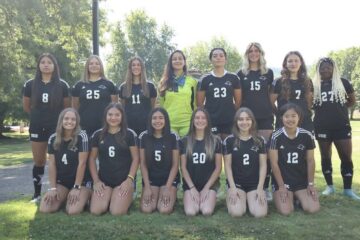FAFSA’s hard-to-swallow truth
That time of the year has come yet again, FAFSA time. Many students struggle with getting it done because it’s time-consuming, taxing (literally) and ongoing. However, it is also the vital reason most students can go to college.

The Mainstream
“FAFSA allows the college to see where students can get federal funds such as work studies, Pell grants, subsidized or unsubsidized loans and more,” Ben Horvath, UCC’s financial aid specialist, says.
Michelle Bergmann, director of financial aid, says, “It’s not meant to live off of; it’s meant to supplement students. Aid is for gas, books, tuition and other education expenses.”
Horvath says, “Depending on the student’s need, they can receive the Oregon Opportunity Grant or the Oregon Promise.” These grants are through the Office of Student Access and Completion, OSAC, but require a FAFSA application.
While some students feel an advantage in filling out their FAFSA each calendar year, other students may not so much.
“I don’t [think its fair]. When I was in high school, I had a friend and his parents made a large amount of money. So he didn’t get any aid because of that, but his parents also weren’t contributing. However, I also have friends whose parents didn’t make a lot of money, and they got a lot of scholarships and help with financial aid. Because of this, I don’t think it’s a fair system, and it singles people out,” a UCC student says who asked to remain anonymous.
FAFSA calculates expected family contribution, EFC, when creating payouts, whether or not the students are supported by their parents.
Students without communication with their parents receive an exception to needing their parental tax information.

The Mainstream
“We have [an application] for students with a special circumstance, but it is only allowed in certain situations.” Bergmann says, “The student with these circumstances needs to fill out several forms and get another professional to write a letter for them, like a priest or a counselor. The student can also speak to me, and I use my professional judgment to give the students those statements.”
Special circumstances are unique situations. “If a student won’t get their parents [to fill out their portion], they do not have a special circumstance and they will only qualify for unsubsidized loans,” Bergmann says.
For students who fail to qualify for a special circumstance and don’t want to contact their parents, they aren’t out of luck. “If parents say that they are not going to provide [tax information], we will reach out to the parent to let them know that they will not be required to help with college, and the student won’t have to see the parent’s financial income.” Bergmann says, “Students can provide us with their contact information, and we will contact them.”
Students older than 25 years don’t have to put their parental income on their FAFSA which can make a huge difference in their financial needs, but this system is different for those younger than 25.
“There are different dynamics on FAFSA itself that can affect being younger than 25 and not needing the parent’s information like being married or being a parent/guardian,’ Horvath says.
In addition, if a student’s financial situation abruptly changes, they are not stuck waiting for the following FAFSA year. “With COVID, numerous amounts of circumstances may happen like a source of income changing; that is a special circumstance, so we can look over the circumstances. Not working and going to school is a personal choice and won’t qualify for a special circumstance,” Bergmann says.
If the student does qualify for a special circumstance in the middle of the year, they will need to speak to the financial aid office. “We can put current information on the FAFSA,” Bergmann says.
UCC’s financial aid office wants to help. “The importance of getting an application in as soon as possible is beneficial. That way students can get this out of the way and focus on what’s more important their education,” Horvath says.
Bergmann says, “Once students complete the FAFSA, it is important to follow up with us.”
For the 2023-24 school year, FAFSA opened up on Oct. 1, 2022. Horvath offers FAFSA application assistance by appointment along with ‘Financial Aid Wednesday$’
To learn more about the importance of FAFSA and how to get it done easily, contact UCC’s financial aid office at FinancialAid@umpqua.edu or call 541-440-4602.
https://calendly.com/ben-horvath
https://www.umpqua.edu/enrollatucc/rsvp?view=form

Contact me at:
UCCMainstream@yahoo.com
For more articles by Savannah Peterson, please click here.


